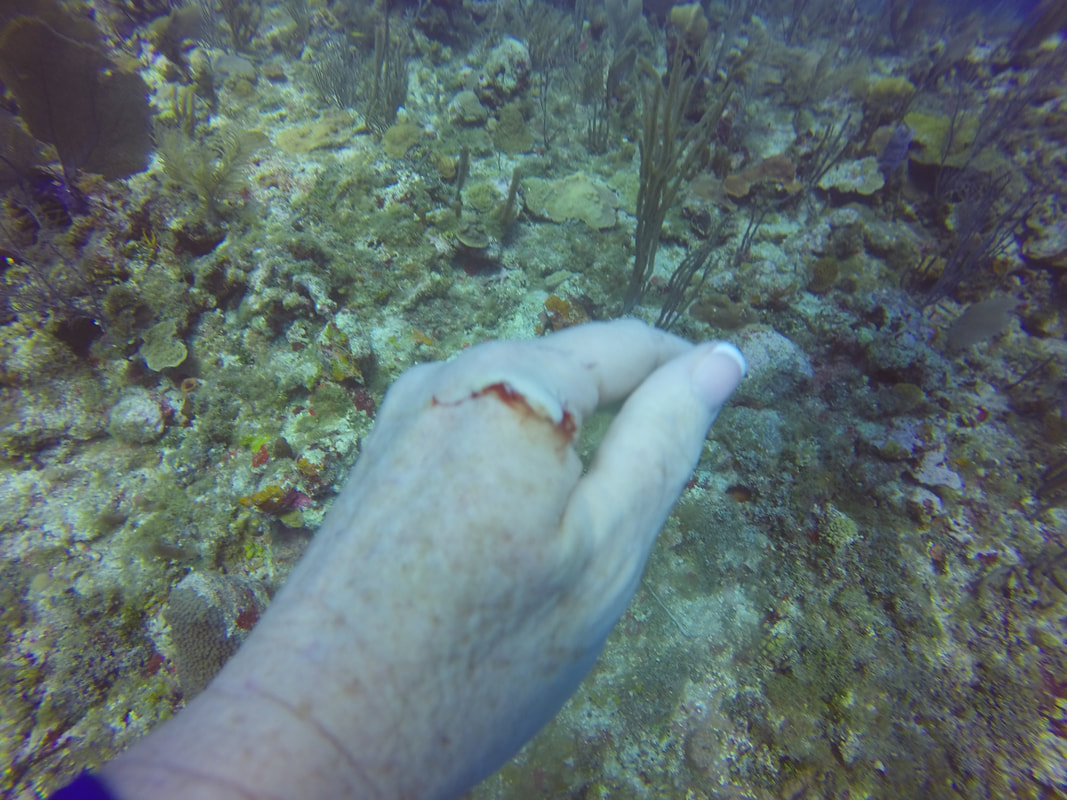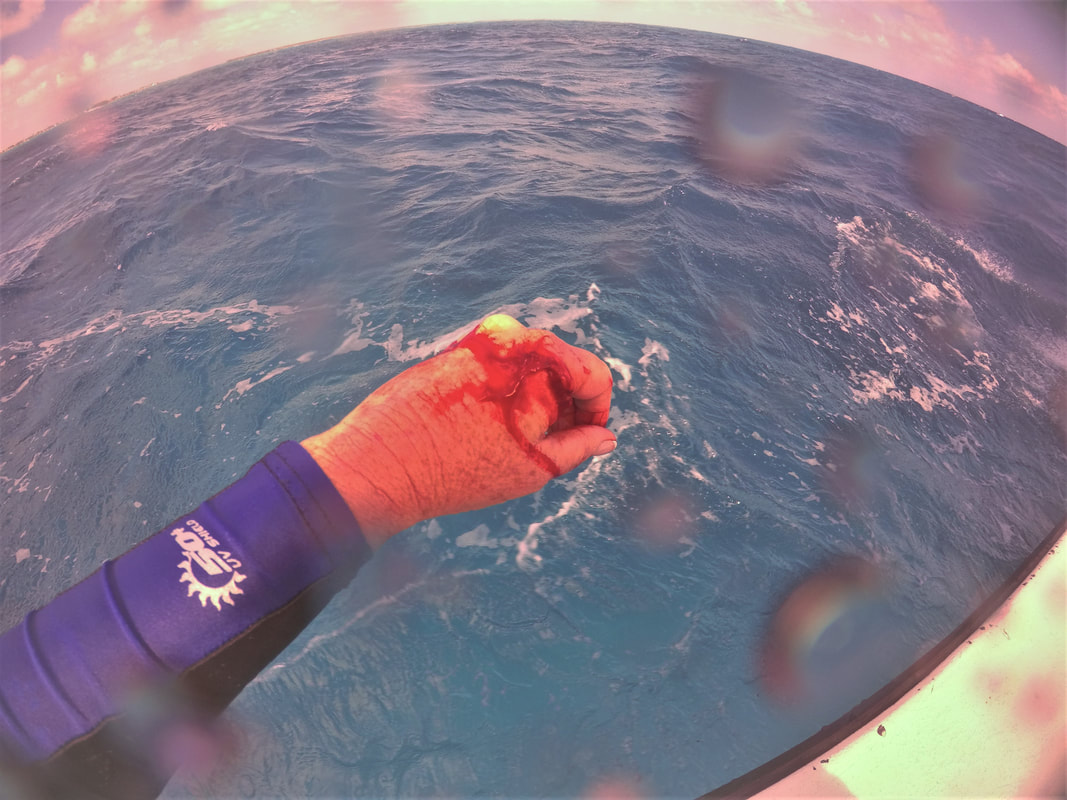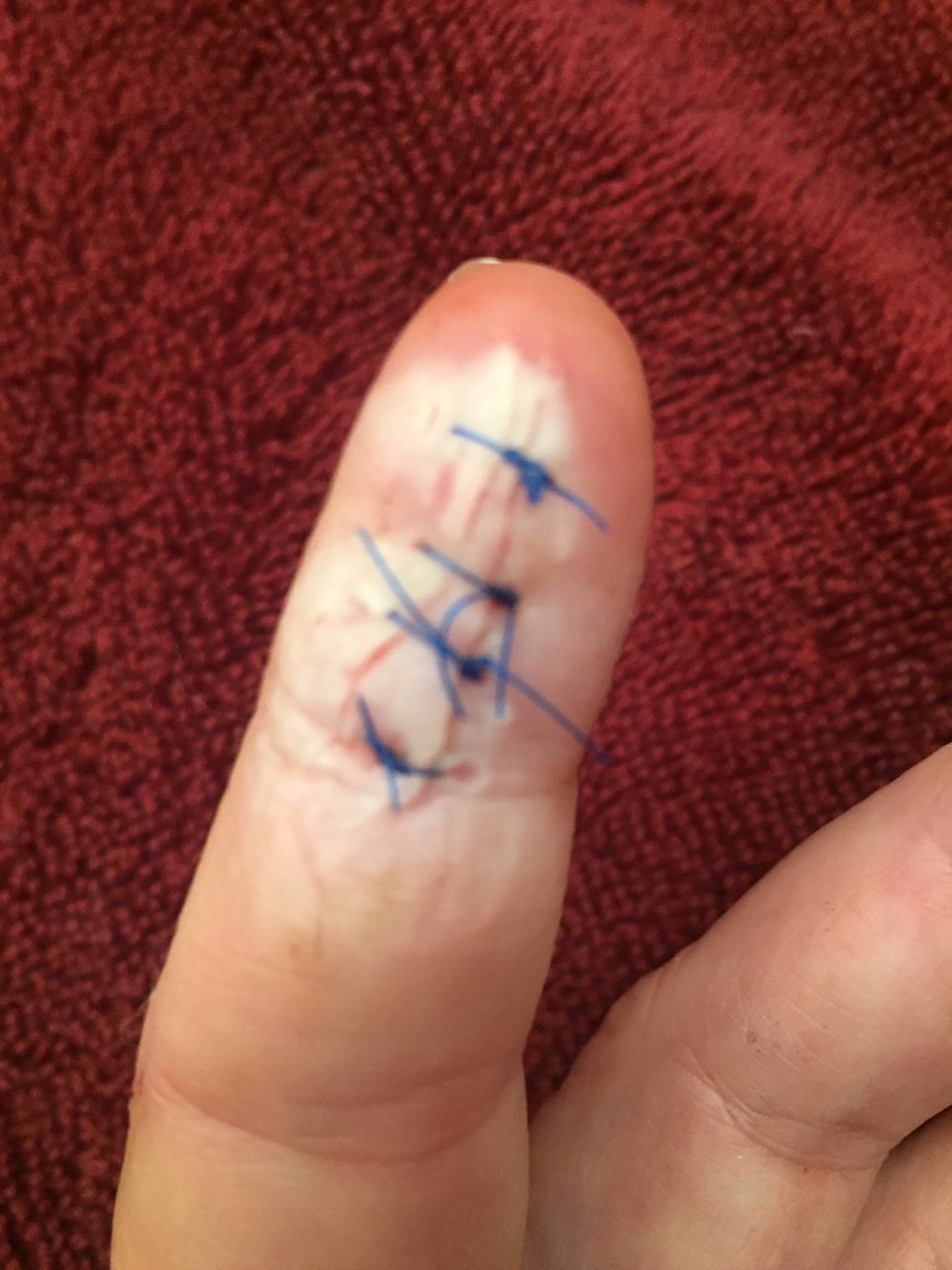Hazards of Feeding Lionfish to other Marine Life
When lionfish first appeared in the Atlantic Ocean and Caribbean Sea, scientists actually advised that lionfish should be fed to local marine life in order to assist in training them to consume lionfish. The theory behind this was that native fish did not evolve knowing how to eat lionfish, so if assisted in learning, they may learn how to eat lionfish more quickly, and help manage the invasion. If a speared lionfish is presented to a snapper, grouper, shark or moray eel, the prey item is eagerly accepted. However, more recently, scientists now recommend that lionfish should not be fed to native fish as it changes their natural behavior.
|
Why should we not feed wildlife?
Belize Fisheries Regulations prohibit feeding of marine life. Feeding wild animals changes their natural behavior as they begin to associate people with food. In the case of feeding lionfish to other fish, the fed fish become more aggressive. Moray eels especially have been reported to become more aggressive towards divers in Belize. In 2017 a female diver was bitten by a free swimming moray eel. The moray eel came up from behind her and bit her hand. No one on this dive was spearing lionfish or feeding lionfish to marine life. However, there is a dive center that regularly spears lionfish and feeds marine life in this area which has produced aggressive behavior in resident moray eels. The dive trip had to be cancelled and the diver brought in for treatment. The diver received 12 stitches. In this case the diver did not loose any fingers, but it is possible worse encounters with more aggressive marine life can occur. Therefor, to avoid and prevent aggressive attacks on divers, the current protocol is that any lionfish culled, must be brought to the surface. |
Photos courtesy Kevin & Kate






